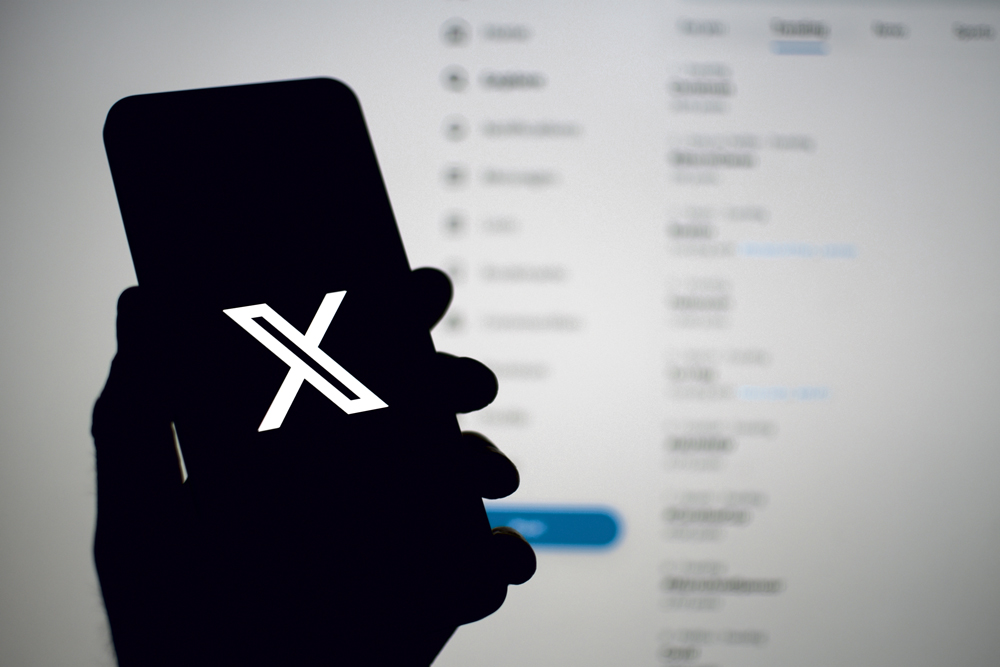Laine Aizupe, “Latvijas Avīze”
At the end of January, the German Foreign Office issued a report that more than 50 000 fake accounts had been discovered on the social networking site X, from which more than a million German-language tweets had been sent in recent months. The Office claims that the fake accounts come from Russian troll factories and believes that their main purpose is to undermine public support for the coalition government and in particular for Ukraine.
Even ministerial pages are being falsified
The true extent of the Kremlin’s disinformation campaign could be much larger, as experts analysed the tweets only between 20 December and 20 January using special software on behalf of the Foreign Office. The vast majority of these tweets claim that the government does not care about its own people because it is devoting all its attention and resources to supporting Ukraine. “I am very disappointed in the government – they care more about foreign countries and don’t think about their own citizens at all,” reads one of them.
The other one million messages have a similar tone: “It is a disgrace that the ruling coalition does not start by tackling the problems in our country.” Often, the fake accounts were accompanied by links leading to fake news and ministerial pages. At first glance, these “doppelganger” web pages are formatted no differently from the real ones, but are full of false news, often related to the war in Ukraine. Very often, these fake pages circulate the message that Ukraine is close to defeat.
The domain address betrays the doppelganger sites. For example, the addresses of the doppelganger German ministries or major news portals do not end in .de but in .ltd. Sometimes accounts of well-known people on the X platform are also copied. For example, last September, Annalena Baerbock, German Minister for Foreign Affairs, allegedly tweeted that the war in Ukraine would be over in three months. This doppelganger looked real, but the trolls had forgotten to remove several Cyrillic characters.
Most harassing on weekends
Conspicuously, the tweets of the fake accounts are more frequent at weekends and during holidays celebrated in Russia. Unfortunately, many users of the X platform have failed to notice that troll factories, not ordinary people, are behind these messages and have been diligently spreading these tweets. In an interview with Latvijas Avīze, Thomas Crenshaw, a researcher at the Heidelberg Institute for International Conflict Research (HIIK), explains that the Kremlin trolls’ “calculation is simple – any controversial discourse can be used to polarise society, which weakens and paralyses it. Russia is now taking every opportunity to weaken foreign societies and then exploit this weakness at the appropriate moment”.
German Minister of the Interior Nancy Feser points out that this recently exposed campaign of lies gives an idea of the true extent of “Russian disinformation in Germany”. Feser also stressed the need for the EU to work together and use all the tools of the Digital Services Act (DSA).

Screenshot from X. (EIR_SAPIERI_viltusprofils)
Here is one such fake profile that looks exactly like the real profile of the Indian diaspora in Germany. Everything is spelled exactly the same, except for the X in the site account holder’s name Germany. A test of vigilance! Many followers did not notice this.
The Digital Services Act should be used to tackle lies
In an interview with Latvijas Avīze, Bertelsmann Foundation researcher Kai Unzicker argues for “regulatory intervention through the DSA” – to debunk lies and consistently regulate social media to reduce the impact of lying campaigns at the root. Unzicker also points out that “we need to talk about misinformation and educate people about media literacy. This campaign is not the first or the last. And thanks to new technologies, we have to expect that disinformation campaigns will get better and better”.
Crenshaw also stresses the growing importance of technology in disinformation campaigns: “Bots can be multiplied almost infinitely – this makes them particularly attractive. Artificial Intelligence (AI) is also very cheap and can be dangerous. So-called deep fakes use synthetic images, videos and voices. This means that we need to educate the public about media literacy – whether this news is also appearing in other media, whether the data is verifiable, whether the media is trustworthy”.
Unzicker reminds that “authentic material” can also be used to spread lies. “This can be even more dangerous because the images or videos are real. Just taken out of context – maybe a different year, a different country, incomplete information and so on. But people believe it because the image hasn’t been altered and it looks real”.
However, Unzicker also stresses that this does not necessarily mean that we are approaching an era where nothing and no one can be trusted anymore. “We see that these lie campaigns work better in some countries than in others. Of course, we have to be careful, but in general, in countries with a diverse and independent public media environment, these campaigns do not work as well. Germany has a high-quality, independent public media and a wide range of high-quality, independent newspapers – we are in a much stronger position than many other countries.”
Target – the Russian-speaking community
Germany is not the only EU country to experience such a large-scale attack by Kremlin trolls. As Crenshaw points out: “Similar Kremlin disinformation campaigns, designed to polarise society and mobilise the Russian-speaking population, have long been observed in countries such as Estonia, Latvia, Lithuania, Finland, Georgia and Moldova”.
The French government has also issued an official statement that Russia is deliberately spreading false news about France in connection with the war in Ukraine through social media and official media such as Sputnik News, RT and RIA Novosti in the form of a “coordinated campaign”. “This is the main idea of these so-called news channels – to pick up on existing fears, anxieties and desires in society and reinforce them to the Kremlin’s advantage,” explains Crenshaw.
The French government accepts that this is only the beginning of a large-scale campaign in the 2024 election year and expects Russian activities to disinform and influence citizens in many European countries, especially ahead of the European elections (6–9 June), to increase significantly. As a disinformation campaign of similar magnitude has also been observed in Poland, the Ministers for Foreign Affairs of Poland, Germany and France agreed in mid-February on a joint warning mechanism against Russian troll attacks.

